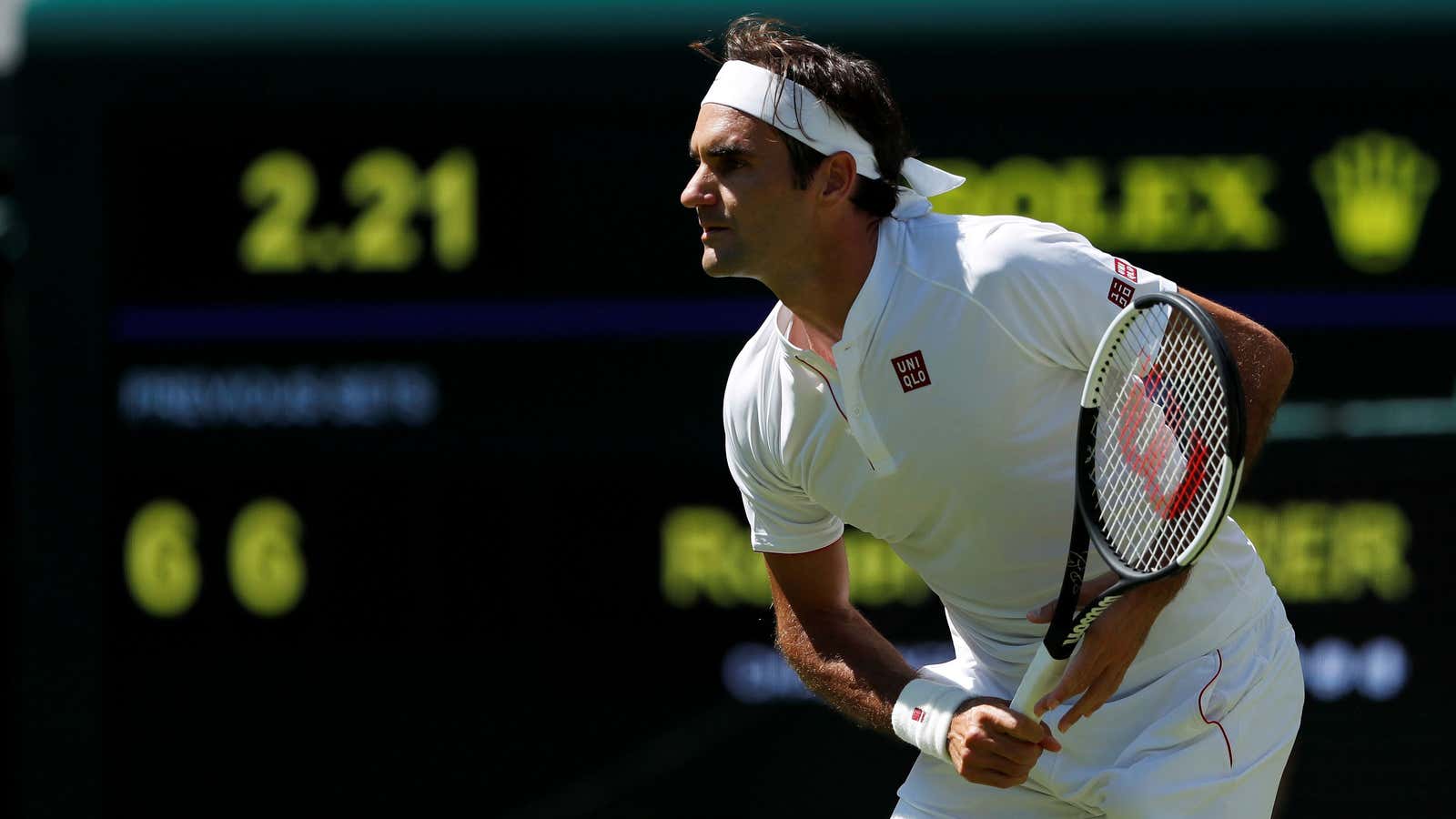Roger Federer arrived for his opening match at Wimbledon today (July 2) wearing something other than Nike for the first time since 1994. Instead of a swoosh, his Wimbledon-mandated all-white outfit bore the boxy red logo of Japanese retailer Uniqlo, confirming weeks of speculation that Federer and Nike were parting ways.
While Federer probably didn’t do much for Nike’s business, which is built on running and basketball, the world’s biggest sports brand might seem a more obvious sponsor than Uniqlo, a company known for affordable, functional basics. But the retailer clearly sees an opportunity, especially as it’s reportedly paying the Swiss star more than $300 million over the next 10 years in the pricey deal. Uniqlo plans to use Federer to show off its ability to create comfortable, temperature-regulating, moisture-wicking everyday clothes.
Uniqlo has strived to set itself apart from other clothing brands through its focus on innovative materials such as its insulating Heattech and UltraLight down that keep the wearer comfortable through a variety of conditions. It calls the concept LifeWear, and it involves ongoing product development to create things like Uniqlo’s AIRism fabric, a breathable, adaptable base layer that Uniqlo calls ”comfort conditioning technology.” Uniqlo founder Tadashi Yanai has for years, in fact, insisted that Uniqlo is not a fashion company, it’s a technology company, despite the plain fact that it sells clothing.
Federer, as a Uniqlo “global brand ambassador,” will help the brand promote its LifeWear by playing—and ideally winning—matches in the company’s technical fabrics. In its announcement of the new partnership, Uniqlo bluntly pointed out that it “is not a sports company,” and revealed that Federer’s Wimbledon clothes will be made of its Dry EX material, developed with industrial innovator Toray Industries. “Dry EX features a special arched structure that dries faster than ordinary dry function material, preventing the steamy and sticky feeling due to perspiration and keeping a comfortable feel during play,” it states. Uniqlo designed the look, which includes a short stand-up collar instead of the usual polo or crewneck collar, at its Paris research and development center.
Federer isn’t the first athlete Uniqlo has signed. Despite not being a sports company, it has sponsored a handful of tennis players and golfers before. For about five years, Novak Djokovic wore Uniqlo on the court until he decamped for Lacoste in 2017, and along with Federer, Uniqlo’s global brand ambassadors today are Kei Nishikori (tennis), Shingo Kunieda and Gordon Reid (wheelchair tennis), and Adam Scott (golf). The choice of sports makes sense, as tennis players and golfers both compete in gear not too far from everyday clothes, rather than in uniforms.
At the moment, comfort-conscious shoppers have been blending more and more athletic clothing into their everyday wardrobes. Uniqlo’s betting on Federer to help attract more of them to its own variety of technical comfort.
